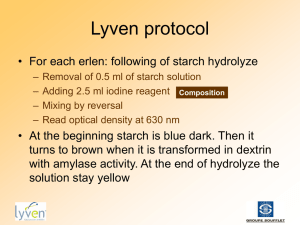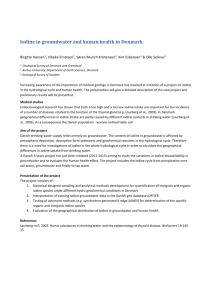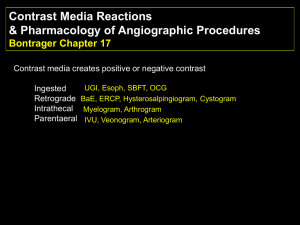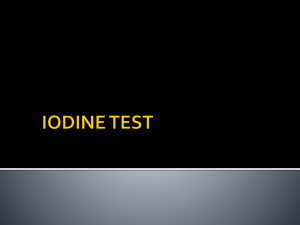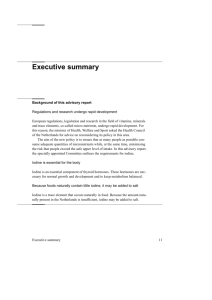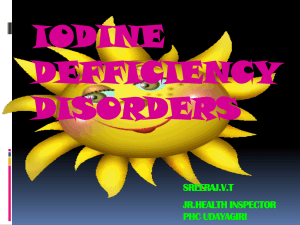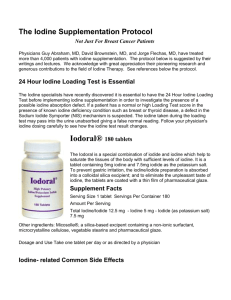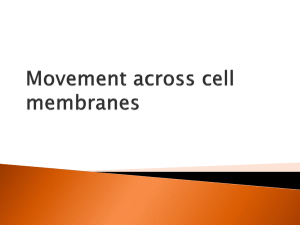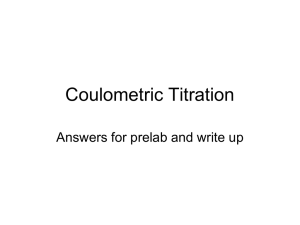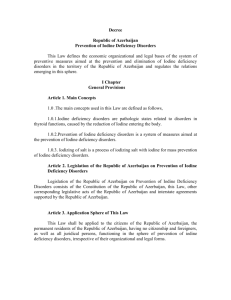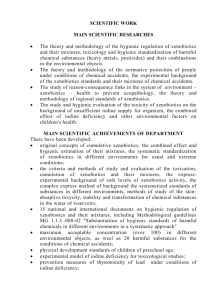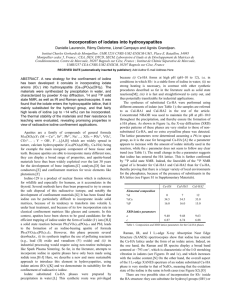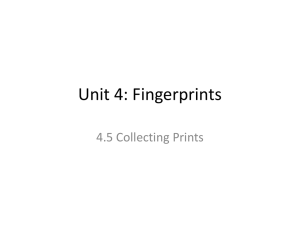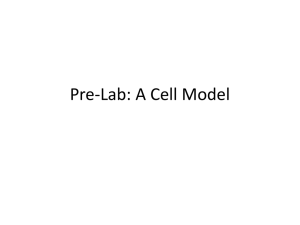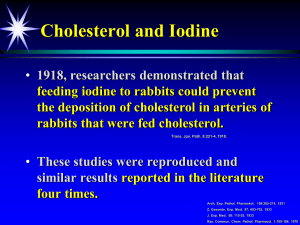Powerpoint on Iodine in pregnancy for WIC staff
advertisement
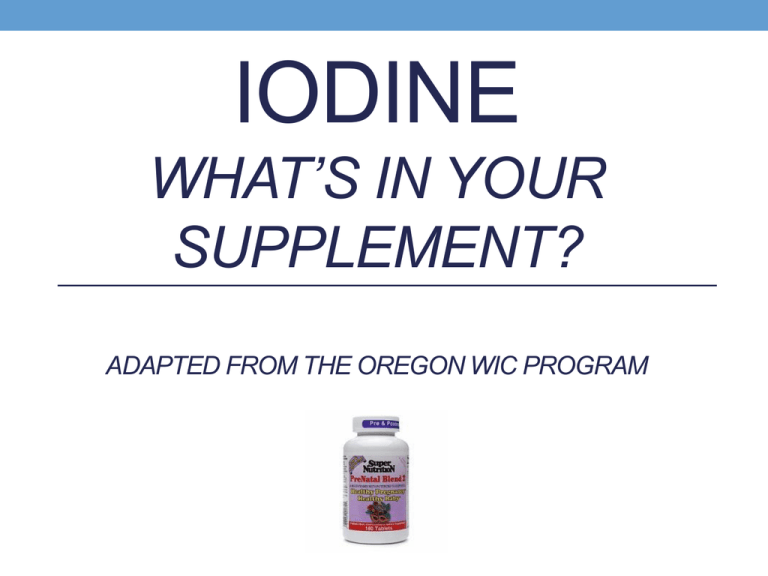
IODINE WHAT’S IN YOUR SUPPLEMENT? ADAPTED FROM THE OREGON WIC PROGRAM Goals & Objectives Goals: Increase knowledge of WIC staff regarding the importance of iodine supplementation for pregnant and breastfeeding women. WIC staff can assign Risk 427D correctly and discuss iodine supplementation with participants. Objectives: Upon completion of this in-service, staff will be able to: Explain the reasons for iodine supplementation for pregnant and breastfeeding women. Demonstrate their knowledge of iodine supplementation by reading nutrition labels and identifying iodine-containing prenatal vitamins. Iodine: What do you know about it? • Essential trace mineral • Helps with thyroid function • Prevents goiter in women • Prevents certain birth defects in infant, including: • Mental retardation • Speech and hearing deficits • Motor skill impairments • ADHD Where is it? • Table salt – iodized since the 1920’s • Seafood and seaweed • Naturally found in soil • Small amounts found in: • Grains • Dairy • Meat Iodine and Public Health • Added to salt in the 1920’s • Among first foods fortified to prevent a common health issue (goiter) • Later found iodine prevented certain birth defects (cretinism) Why are we worried about iodine? What can happen if you don’t get enough? • Deficiency is rare in U.S. • Iodine Deficiency Disorders (IDDs) • Increased number of miscarriages, stillbirths, and birth defects • Depends on developmental stage and severity of deficiency How much do we need? • Adults & adolescents: 150 micrograms /day (Micrograms is abbreviated mcg or µg) • Pregnant or Breastfeeding Women: 250-500 mcg/day Pregnancy & breastfeeding • Increased need during pregnancy and breastfeeding because mothers are the sole source of iodine for their babies How much iodine is in salt? • One teaspoon of iodized salt contains 400 mcg of iodine • Americans get lots of sodium, primarily from processed foods, not iodized salt. • Don’t encourage moms to eat more salt, rather encourage them to consider buying iodized salt when they shop. Recommendations for Iodine • The American Thyroid Association recommends that pregnant and breastfeeding women take prenatal vitamins with 150 mcg of iodine per day. Prenatal Vitamins • Take before or early in pregnancy • First half of pregnancy especially critical • Recommend a vitamin that contains 150 mcg of iodine during pregnancy and breastfeeding • Not all prenatal multivitamins contain iodine • Review labels before making recommendations What does this mean? • DO NOT increase salt intake • When adding salt to food, consider using iodized forms • Vitamins should supplement food • About 150 mcg from supplements • Combine with foods to reach 250-500 mcg/day Assigning Risk 427D • Risk 427D is Inadequate Vitamin/Mineral Supplementation . • In HuBERT the question about supplemention for women reads “What type of vitamins, minerals, herbal supplements or teas are you taking?” • When assessing the supplement for iodine: • If none – assign the risk • If yes – ask if it contains iron, folic acid and iodine • If they don’t know – do not assign risk and refer to their health care provider. • If it does not contain any of the 3 nutrients – assign risk • If it contains all 3 nutrients – do not assign risk Questions?
